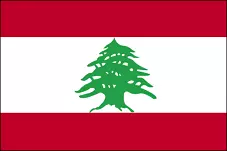In the 600s Islam arrived to the region and today most of the people in Lebanon are Muslim. This faith is more conservative than Christianity on most measures and the faithful are required to dress conservatively, abstain from alcohol, and they also have other regulations, including stricter guidelines on dating and interacting with people of the opposite sex. Today these rules and restrictions are followed to varying degrees.
Another item of importance in determining the current way of life in Lebanon is their location since people have passed through, stopped, or taken control over the region throughout history. These many outside exposures have led to a greater fight for independence in the past and today as wider divides between the Muslims and Christians have arise in some ways, but this has also led to similarities and crossover from one culture to the next. While these outside influences have both positive and negative effects, they have made the people very aware of cultural differences between themselves and outsiders. Today things thought of as being "non-Muslim," like liberal dress and the consumption of alcohol, are common among many Muslims. However, for others this isn't the case and many Christians have become more modest in dress and behavior due to the Islamic influences, making the divide between religious groups less pronounced.
Although the country found itself in civil war in 1975 and tensions still exist between some Christians and Muslims, as well as between people with varying political viewpoints, for the most part the people have learned to accept differences and work together. This is not a statement on their ability to negotiate so much as it is a testament that they understand differences exist and they recognize these differences, but they still manage to work across religions and political beliefs.
The final important aspect that has led to the present way of life in Lebanon is their unity in focusing on economic progress and growth. In the 1940-50s Lebanon was an economic leader in the Middle East and today the people are working on getting back to that position. The economy in Lebanon is one of the strongest factors uniting the differing groups and is the base of their growth as all seek better jobs, better growth, and better opportunities for themselves and for their families.
 The background of Lebanon's flag is white, which represents peace, the snows of the mountains, and purity, and red, which symbolizes blood shed for liberation. The green cedar tree is the symbol of Lebanon, as it has been for centuries; the tree represents eternity, steadiness, happiness, and prosperity.
The background of Lebanon's flag is white, which represents peace, the snows of the mountains, and purity, and red, which symbolizes blood shed for liberation. The green cedar tree is the symbol of Lebanon, as it has been for centuries; the tree represents eternity, steadiness, happiness, and prosperity.
Name: Lebanese Republic
Independence: November 22, 1943
Capital: Beirut
Currency: Lebanese Pound
Population: 4,131,583 (2013 estimate)
Ethnicity: Arab
Language: Arabic
Religion: Muslim & Christian